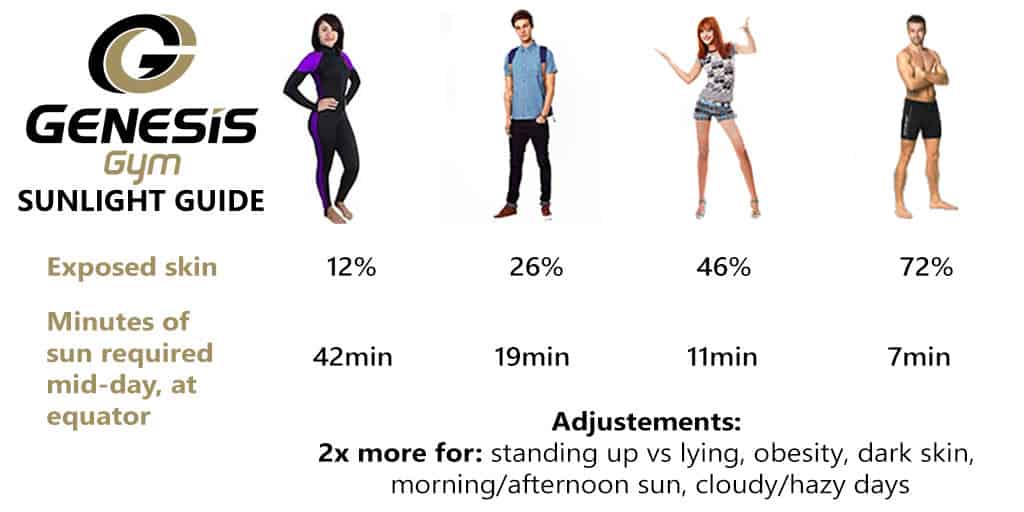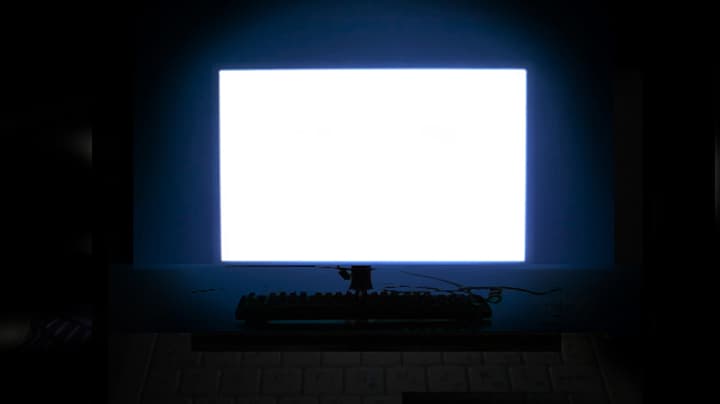Introduction
This section covers the healthy things you can do outside of your exercise and food. After all, there are only 30 or so meals per week, and several exercise sessions per week.
But there are still more than 150 remaining hours each week. What happens during those hours has a massive effect on your health.
This is why Genesis Gym’s team of Singapore personal trainers place an emphasis on empowering clients with great lifestyle habits.
We want the habits and actions performed during these 150 hours to help your progress towards your fitness goals.
Tip #33 – Get time outdoors
Do you realize that it’s possible to live almost 100% indoors? Get up, take a car or train to work, go into an air-conditioned office. Take an underground passageway to the mall for lunch and back to work. Then back into the car or train and to your home.
But if this is a typical day in your life, you’re missing out on some outdoor things that will benefit your health.
Research on the benefits of outdoor activity argues quite strongly in favor of it.
The sights. The colors blue and green have been shown to increase relaxation and enable better stress management. These colors even improve exercise performance. In one study, cyclists were tested by cycling with grey, red, and green images in front of them. Those with the green images reported lower difficulty and pain levels.
The sounds. Studies on recovery from psychological stress (we all have that!) show that nature sounds are more effective at enhancing recovery than either loud or soft man-made sounds.
The smells. Lavender, rose, jasmine and freshly cut grass all showed measurable benefits for relaxation, reducing insomnia and improving stress management.
Overall, brain function, stress levels and general well-being improved with increased outdoor time. The problem is actually putting this into practice.

Singapore is hardly known for its wonders of nature. But what I recommend and try for myself is to do something outdoors on the weekends instead of just going to another mall or cinema. I visit parks or the beach with my family. There is also a small park near my home where I can do chin-ups.
Tip #34 – Get enough sunlight
You need sunlight for vitamin D production, which occurs in the presence of ultraviolet B rays from the sun.
This means that you need “fresh” sunlight to make vitamin D. Ultraviolet rays are absorbed by glass, so sitting in front of a window does not count.
Vitamin D is produced on the surface of your skin. So if you are swimming, a lot of it is washed away, and that doesn’t count either.
Vitamin D is active in almost every cell in your body. That is why you will find research showing that good levels of vitamin D help with many different ailments:
- Boosting the immune system to protect against disease
- Lowering the incidence of autoimmune disease (in which your body’s defense mechanisms attack themselves)
- Improving mood
- Reducing depression
- Improving weight loss (vitamin D improves thyroid function to speed metabolism)
- Boosting bone health (vitamin D is required for calcium absorption)
- Reducing cancer risk
- Reducing cardiovascular disease risk
- Reducing blood pressure
To get enough vitamin D in a sunny country like Singapore usually requires about ten or fifteen minutes a day in shorts and t-shirt, in the midday sun. But if you have dark skin, or only get evening or morning sun, you need to increase your exposure.

The good news is that vitamin D is fat-soluble, so it can be stored quite well. Doing extra outdoor activities on the weekend in the sun is a good choice to get your “fix” for the week.
Finally, if you are never able to go outside, then vitamin D supplementation is a valid option. Go for the active form called vitamin D3. 4000IU per day is a good start.
But if you can, there is nothing better than doing it the natural way. If you get vitamin D via sunlight, it tends to stay longer in your body.
In addition, you get the added benefit of lower overall cholesterol – especially “bad” cholesterol – since cholesterol is used up as a raw material in vitamin D production.
Finally, the red and orange wavelengths of natural sunlight stimulate energy production in the cells and raise metabolism. This makes weight loss or fat burning easier.
These reasons are why sunlight is one of my top recommendations for personal training clients who want to get better results!
Tip #35 – Get quality sleep
A person over age 40 does not usually require as much sleep as a typical teenager. And there are also individual differences in the amount of sleep we need. So quantity is an issue, but even more important is the quality of the sleep you get.
Most people are well aware of the benefits of good quality sleep. But what exactly does that mean? Take this short quiz to check if you are sleeping as well as you should. Count the number of times you answer with a “no.”
- Do you fall asleep easily?
- Do you sleep through the night?
- Do you wake up at the same time each day?
- Do you get at least seven hours of sleep each night?
- Do you need an alarm clock to get up?
- Do you wake up feeling focused, energetic and refreshed?
- Do you remain energetic throughout the day without stimulants?
How many “no” answers did you give?
- 0: Great, you have healthy sleep patterns.
- 1-2: Passable, but some minor adjustments should get you to excellent sleep.
- 3-4: No good – your sleep problems definitely affect your health.
- More than 4: Sleep should be the number-one priority to address in your total health programme.
If you find yourself with a poor score, here are some things you can do to improve your sleep.
Improve your sleep environment by making it cool. There is no consensus on the best sleep temperature, but we do know that temperatures that are too high disrupt sleep. Start with something like 24°C and play around until you find what works best for you.
Improve your sleep environment by making it quiet. The quieter the better. This can be a challenge, especially in a crowded country like Singapore. Unless you live in a bungalow surrounded by a large garden, there will always be neighbors, pets and kids around. If your sleep environment isn’t quiet, use earplugs. Some people find this weird at first, but it’s not that hard to get used to. And the sleep quality benefits are worth it.
Improve your sleep environment by making it dark. In a city environment, it is also hard to make your bedroom dark enough. How dark is dark enough? A simple test is to lie face up in bed and stick your arm straight up over your face. If you can see your hand, it’s probably not dark enough. One solution is thick curtains for your bedroom. To install these in my home’s medium-sized master bedroom cost a few hundred dollars – not a horrible amount. If this is not an option for you, get a traveler’s eye mask or simply put a folded towel over your eyes.
Improve the electronic environment. Switch off all transmitting electronic devices in your room – laptops, phones, routers, etc. You may think these don’t bother you, but our bodies are electrical at the cellular level, so any non-natural frequencies tend to be negative for us.
This can make a big difference for some people. In the last ten years of helping people with their sleep quality, I have noticed a wide variance in the tolerance of people toward electromagnetic waves. You may have noticed this as well. You may have friends who can spend all day talking on their cell phones with few side effects, and others who get a headache after just a few minutes on the phone.
So switch off all your electronics. Or at the very least, turn them to airplane mode and keep them a few meters away from you.
Improve the colors of your lights. At night, try to use yellow or orange lights instead of the usual fluorescent or LED lamps which are balanced for the color of daylight. This goes for your smartphone, tablet or computer as well. For color accuracy for reading, work or photo editing, most monitors also emit blue “daylight” colors. Try using software like f.lux (Mac or PC), Twilight (Android) or the new Night Shift function on iOS. They make the screen yellow once evening approaches.

This is important because your body uses light color to determine whether or not it’s time to sleep. The default blue light of most devices simulates the midday sun and tells your body that it’s time to stay awake. In response to this, your body will shut down production of the sleep chemical melatonin. This makes it harder to sleep.
Support your sleep nutritionally. Eat enough protein (see Tip #12), because melatonin is made from protein. No protein, no sleep chemicals. Add magnesium as a supplement (see Tip #19). This is the single most beneficial sleep supplement we use for our personal training clients. Finally, consider melatonin supplements. A good starting dose is 3-6mg per day, and at this level it does not have a habituation effect (you don’t get addicted to it). Reduce the amount if you find yourself able to do without it.
Tip #36 – Take time for stress management activities
This tip is closely tied into the sleep tips above. There we focused more on the physical aspects of good sleep; here we focus more on the psychological aspects. I lump these under the broad category of “stress management.”

Make a to-do list. Fear of forgetting something important can cause stress. But once you write it down, you won’t worry about forgetting it. The app that I find most useful for this is Todoist.
Make a gratitude journal and/or a learning journal. Some people find it very natural to reflect on the day that has just passed. But in our hectic world, many are even in a rush to go to sleep. Spend a few minutes in the evening or just before bed to write down the top 3-5 things you’ve learned and/or the top 3-5 things you are thankful for. These positive reflections have helped many of our clients lower their stress and sleep better.
Use the 4-7-8 breathing technique. This one can be a great relaxer and stress buster. It is very simple:
- Breathe into your belly, not your chest (your stomach should get bigger as you breathe in).
- Breathe in slowly for 4 seconds.
- Hold your breath for 7 seconds.
- Slowly breathe out for 8 seconds.
- Repeat 5-10 times.
This works because slow, deep breathing activates the parasympathetic nervous system (the calming system of your body). This lowers heart rate and blood pressure. Deep breathing also has the benefit of activating the pre-frontal cortex, which is the part of your brain which maintains willpower and motivation.
Get Your Free Fitness After 40 Downloads
Get your Fitness After 40 Checklist, Workout Video, And Workout Programme Here
Thanks For Downloading! Time to take action:)
